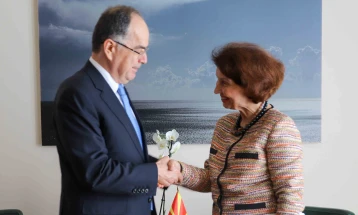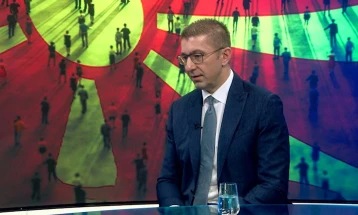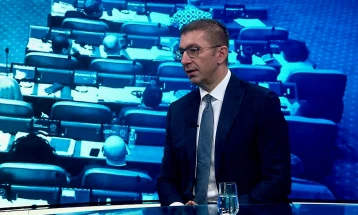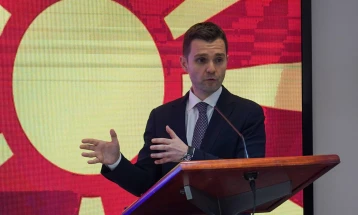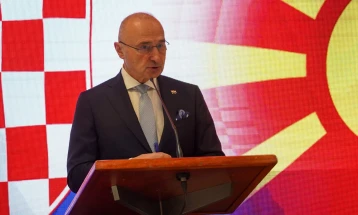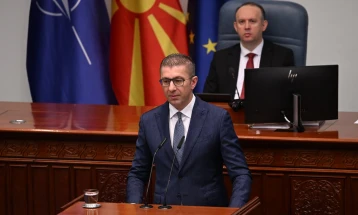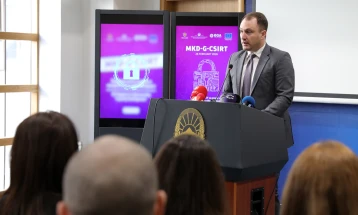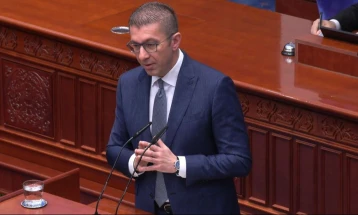Union leader: Minimal wage adjusted, not raised
- For the first time since 2012, the government has made a decision on the minimum wage without any social dialogue, Trade Union of Administration, Judiciary and Citizens' Associations leader Trpe Deanoski told a news conference Wednesday. He also said the government, instead of increasing the minimum wage, merely adjusted it in line with increases in living costs and the average wage.
- Post By Magdalena Reed
- 16:30, 26 March, 2025

Skopje, 26 March 2025 (MIA) — For the first time since 2012, the government has made a decision on the minimum wage without any social dialogue, Trade Union of Administration, Judiciary and Citizens' Associations leader Trpe Deanoski told a news conference Wednesday. He also said the government, instead of increasing the minimum wage, merely adjusted it in line with increases in living costs and the average wage.
The government made the decision without discussing it with the Economic and Social Council, which includes union representatives, Deanoski said.
"We had a May 1 slogan a few years ago that decisions should not be made without the workers, yet, unfortunately, the government at its session yesterday decided on a figure of 1,800 denars. Saying 2,200 denars is not correct, I don't know why the prime minister said that," Deanoski said, commenting on the announced pay increase.
The new minimum wage had not been discussed with any workers' and employers' representatives at a session of the Economic and Social Council, Deanoski said. "This is the first time this has happened but considering what sort of country we live in, it won't be the last. We are absolutely against this decision," he said.
Commenting on official statements that employers and unions should agree on the minimum wage among themselves first before the government raises the national minimum wage, the union leader said this did not make sense.
"Let me remind the Government that it is the largest employer in the country. The public sector employs 129,000 workers, of whom at least 25,000 directly depend on the minimum wage adjustment, which means that this is not a raise, this is just a flat-rate adjustment all public sector workers should get with the increase in the cost of living and the increase in the average wage," Deanoski said.
Earlier Wednesday, Deputy Minister of Economy and Labor Marijan Risteski told reporters that the minimum wage was based on 50 percent of the average salary during the previous year and 50 percent of the previous year's inflation according to State Statistical Office data.
"As a government, we have a duty to respect the Minimum Wage Law, which should begin to be implemented next month. The institutions have enough time to calculate the minimum wage increase, which legally amounts to 2,200 denars," Risteski said.
Asked why the union representatives had not been consulted about the decision, Risteski said the Economic and Social Council was an advisory body and their remarks should be put through "an appropriate legal procedure."
In March 2022, the Minimum Wage Law was amended to include a new methodology pegging the minimum wage to 57 percent of the average income and reflecting 50 percent of the increase in living costs and 50 percent of the wage growth over the past year. Currently, the national minimum wage is 22,500 denars (EUR 365).
The national minimum wage was introduced in 2012 with the adoption of the Minimum Wage Law. It was 8,050 denars (EUR 130) at the time. mr/
